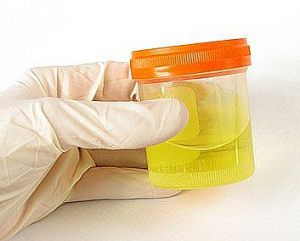Why do Pain Doctors Use Urine Drug Testing?
Most pain doctors in America require patients to submit to urine drug testing as part of routine care. The testing may occur on every visit, or it may be random. Pain management  patients often get upset when required to undergo urine drug testing, however, there is solid rationale for the testing backed up by a significant amount of research.
patients often get upset when required to undergo urine drug testing, however, there is solid rationale for the testing backed up by a significant amount of research.
Arizona workers compensation doctors want to believe their patients and develop a trusting interaction with the prescribed care. They prescribe pain medication and expect patients to take it as written. Unfortunately, all too often doctors are fooled by those who divert the medication for illegal sale, trade the prescriptions for illicit drugs, or end up abusing the medications from multiple different physicians.
 In Arizona, urine drug monitoring represents a vital component of ensuring adherence. It is utilized in conjunction with checking the state prescription monitoring database.
In Arizona, urine drug monitoring represents a vital component of ensuring adherence. It is utilized in conjunction with checking the state prescription monitoring database.
There are multiple reasons Arizona injury doctors incorporate Urine Drug Monitoring:
- Identify nonprescribed or illicit substances.
- Help with therapeutic decisions.
- Corroborate patient adherence
- To provide legal or workplace documentation.
In those pain clinics that utilize urine drug screening, the vast majority perform an initial baseline test to look for any surprises. Once that is deemed to be satisfactory, the American Pain Society recommends random over scheduled testing.
One study in Pain Medicine has shown that almost half of patients with a previous drug related aberrancy problem were able to stick with a narcotic medication regimen when used in conjunction with a pain contract and urine testing. If discussed up front and incorporated into a patient agreement (contract), then the stigma of testing is minimized and the testing falls into a routine mindset.
The two types of urine testing utilized are the initial qualitative and the subsequent quantitative testing, known as a confirmation. The initial testing can show whether or not certain drug classes are present. It cannot, however, usually isolate specific opioids. The confirmation testing is subsequently performed by either chromatography or spectrometry. This testing can detect specific drug classes and metabolites.
 Patients have developed numerous ways of avoiding positive test results. These may include diluting the sample, replacing the sample with another person’s urine sample, adding adulterants, or taking diuretics prior to the test.
Patients have developed numerous ways of avoiding positive test results. These may include diluting the sample, replacing the sample with another person’s urine sample, adding adulterants, or taking diuretics prior to the test.
Normal parameters include a temperature between 90 and 100 degrees Fahrenheit, a specific grativity between 1.002 to 1.030, a pH between 4.5 and 8.0, and a creatine level between 15 and 400 mg/dL. Some of these parameters such as temperature can be seen with the qualitative testing. Some urine testing cups check for adulterants.
There are instances of false positives that can occur. One well known instance is with poppy seeds or quinolone making a person positive for opiates. Diet pills may cause a positive test for amphetamines. When it comes to exact specifications for documentation with a workers comp situation, a urine drug test confirmation makes excellent sense to do.
Urine drug testing is a valuable tool to monitor progress of treatment goals and to prevent diversion. It is not perfect, and physicians should keep this in mind when an abnormal test presents itself. It may be that an abnormal test should either be repeated or sent for confirmation, just to make sure the aberrancy is real.
Due to the fact that urine testing is cost effective and readily available, it is extremely  reasonable to institute it into the care of the injured federal or state worker for the reasons above.
reasonable to institute it into the care of the injured federal or state worker for the reasons above.
Arizona IMA is the premier Phoenix Workmans Comp practice for the injured state or federal worker. The complete focus is on getting patients safely back to work. Dr. Adarmes is a Double Board Certified Physical Medicine Doctor practicing comprehensive pain management for workers compensation patients and personal injury patients.






Leave A Comment